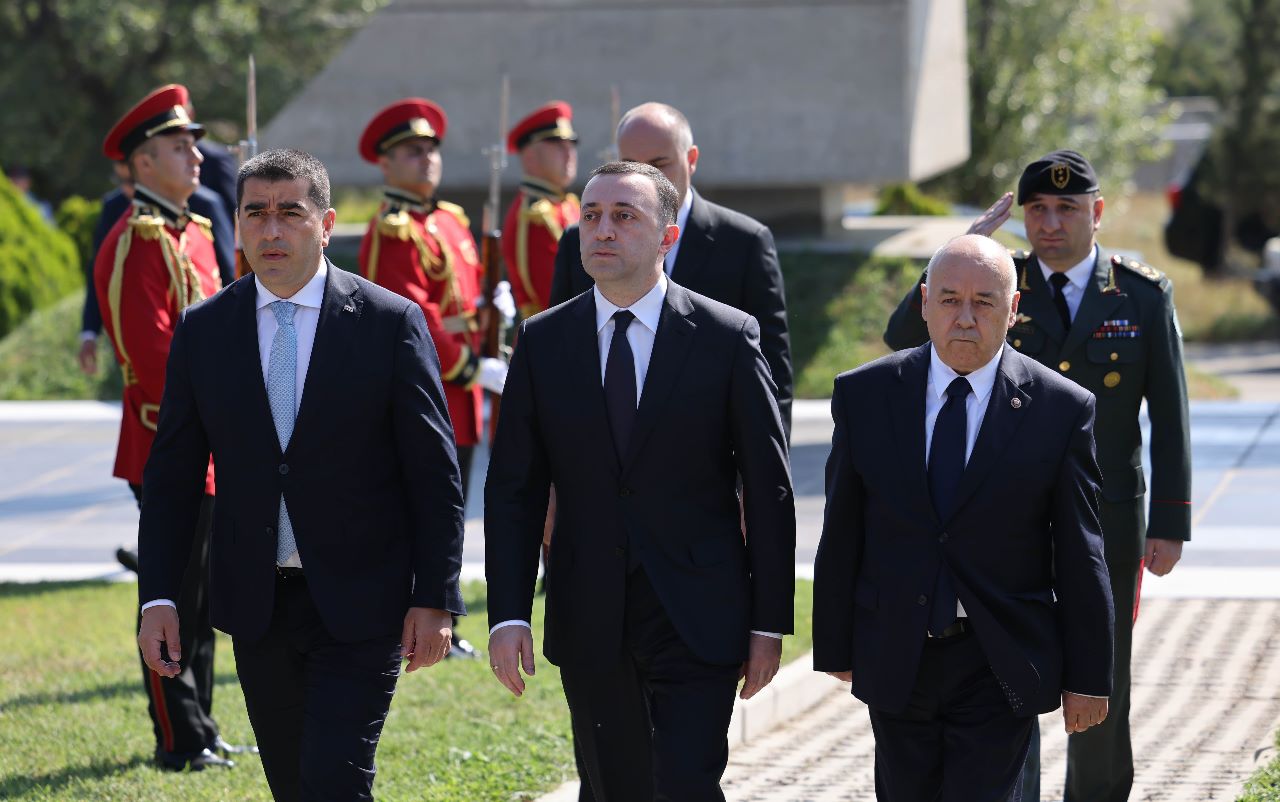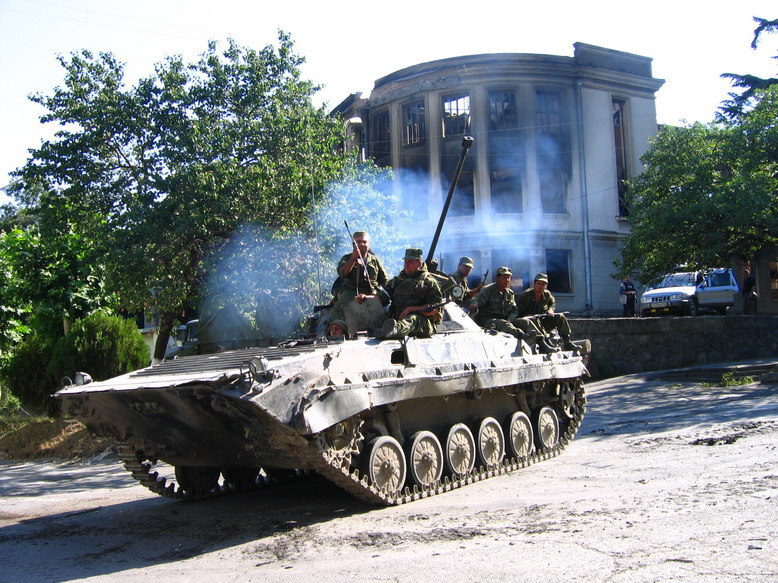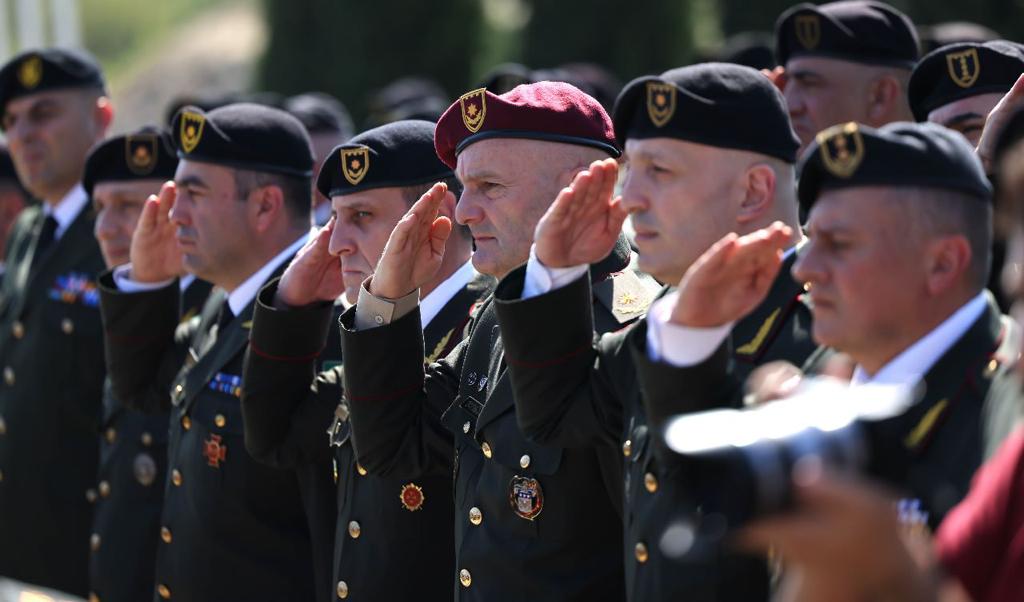What’s Happening;
Prime Minister of Georgia Irakli Gharibashvili commemorated the 15th anniversary of the Russo-Georgian war today by making a visit to the nation’s military cemetery outside the capital city of Tbilisi. The visit was accompanied by military attaches of allied countries and other members of the government.
The occasion has sparked renewed division between the ruling party in power, Georgian Dream, and members of the opposition as to the details of the war, as well as who was ultimately at fault for the defeat of the Georgian military and the continuing Russian presence in the unrecognized regions of South Ossetia and Abkhazia.

The Background;
Prior to August 7, 2008, Georgian security forces and both Abkhazian and South Ossetian separatists had been clashing in low-level engagements for years, leading Russia to deploy a peacekeeping contingent in both regions. On August 1, Georgian police were struck by an improvised explosive device planted by South Ossetian militants, causing Georgian overwatch sniper elements to open fire, killing at least 4 militants.
These events sparked a series of artillery and mortar exchanges that left several militants, Georgian security forces members, and civilians dead and wounded. In the days leading up to the 7th of August, Russian military units were moved into position in the North Caucasus along with various volunteer units and North Caucasian militia. On the 6th of August, then-President Mikheil Saakashvili attempted to reach then-President of Russia Dimitri Medvedev in order to sway him against an intervention or invasion, but he was unable to reach the Kremlin and was told that “the time for presidential negotiations has not yet arrived.”

Russian forces entered Georgian territory on the night of August 7, primarily through the Roki Tunnel that connects the two nations. However, despite Kremlin statements that the units were there for the preservation of Russian border security, this was not apparent according to a 2009 Black Sea Trust report. The report states that the composition and disposition of the Russian units was indicative of a “full scale invasion inside the Georgian territory with the direct objective to replace President Saakashvili and his regime and to install a ‘more responsible’ President in Tbilisi, as Russian authorities clearly put it.”
The position of Russian troops, being at the center of the current controversy, is confirmed in an interview a Russian officer, Captain Denis Sedristyi, to military news outlet Krasnaya Zvezda. “On August 7th, we received the order to start moving towards Tskhinvali. An alert was declared and we began the road march,” the captain said.
Additionally, according to a report by the Estonian National Defense College, Georgian intelligence confirmed the presence of Russian units in Georgian territory on the 7th. “150 Russian tanks and armored personnel carriers entered the Roki tunnel in the morning hours of August 7,” the report says. “This happened 20 hours before President Saakashvili gave the order to attack.”
The resulting 5 days of combat saw 180 Georgian soldiers and police killed, and more than 1,000 wounded. Russia sustained 170 killed and more than 350 wounded, including members of the North Caucasian, Cossack, Abkhazian, and South Ossetian militias.
The Controversy;
The controversy in Tbilisi began when the Georgian Prime Minister announced in his statements that the war began on August 8, a date mirrored in Kremlin reports and propaganda following the war. Adding to this, he continued to place the blame for the war on the Saakashvili administration, saying “I want to point out today, we have said this many times – this war could have been avoided, I know the information that was happening and how the events were developing, I want to point out once again that the former commander-in-chief showed great irresponsibility.”

Opposition politicians responded in outrage, with the leader of opposition party Strategy Aghmashenbeli, Giorgi Vashadze, lashing out. “Irakli, if you don’t understand statehood, if you don’t understand what dignity is, at least shut up and stop talking about this nonsense,” he said in a statement.
“This was a key issue of our enemy’s propaganda, to at least partially blame Georgia for what happened in August 2008 and the fact that today we have a government, a regime, which in this matter and more In the wider context, he has completely become a part of our enemy’s propaganda and has become a partner in this, and he sees in this a recipe for maintaining power for himself, this is our shame,” Giga Bokeria, Chairman of the “European Georgia” party said during a TV broadcast at the military cemetery.
Allied of the Georgian Dream party have backed up the claims of the Prime Minister, with Guram Macharashvili, founder of the “People’s Power” party saying that “there is, I can show you and send you the decree of their leader, Saakashvili, where he directly mentions August 8, when Russian troops entered, from a specific place. August 8 is written with the signature of their leader, they say it is August 7.”
The Bigger Picture;
The anniversary has driven more division between political sides, causing the political future of Georgia to come into question a year before the Parliamentary elections.
Russian Foreign Ministry Spokeswoman Maria Zakharova stated that she hoped for “a more constructive approach by the Georgian side” regarding “non-use of force by Georgia, on the one side, and Abkhazia and South Ossetia on the other” as well as the delimitation of borders for the two largely unrecognized regions. Zakharova blamed a “wave of Russophobia” for the derailment of talks in the South Caucasus.
“Over the past year, major work has been done under Geneva’s auspices thanks to which it is possible to maintain an acceptable level of security on the borders of these three countries,” she stated.
Despite its significant deployment of military resources to Ukraine, Moscow maintains two military bases in de jure Georgian territory; the 4th Military Base in South Ossetia’s de facto capital of Tskhinvali, and the 7th Military Base in Gudauta, Abkhazia. Both formations are estimated to equate to a small Russian mechanized brigade in size and composition, or roughly 10,000 soldiers, border guards, and Federal Security Service (FSB) troops split between the two regions according to most Georgian and Western estimates.

